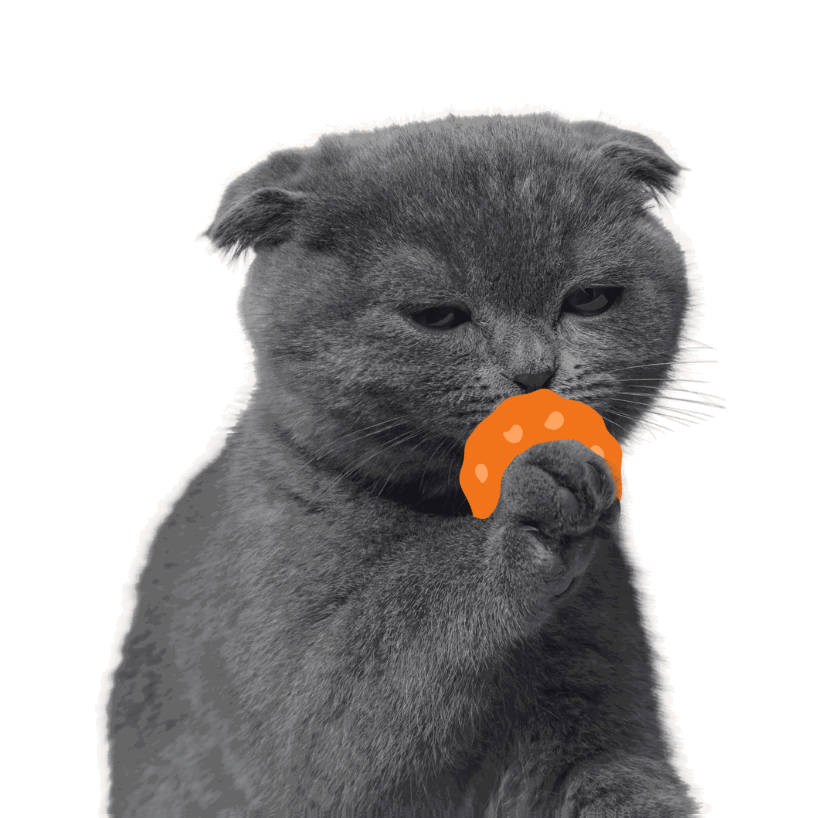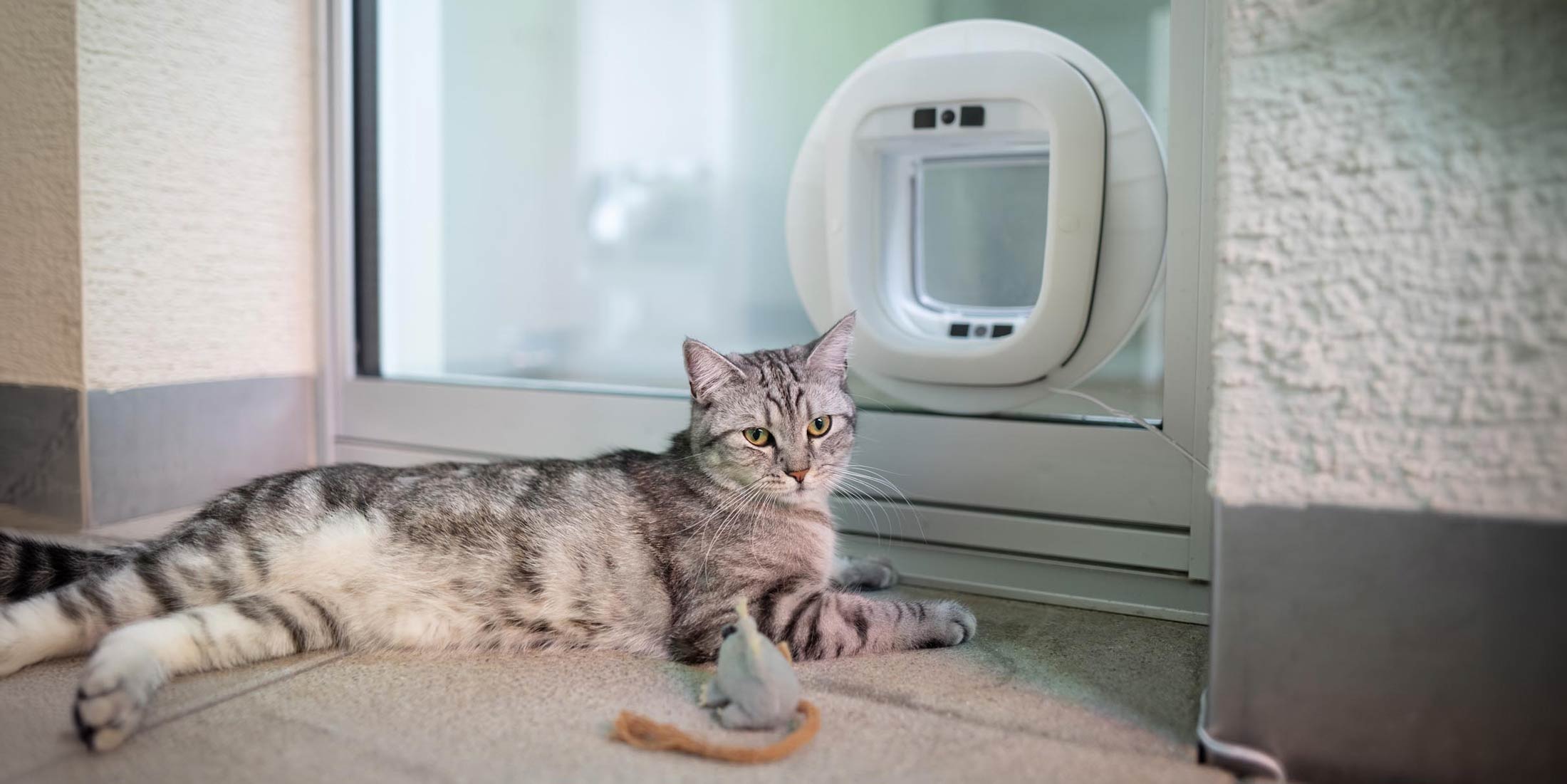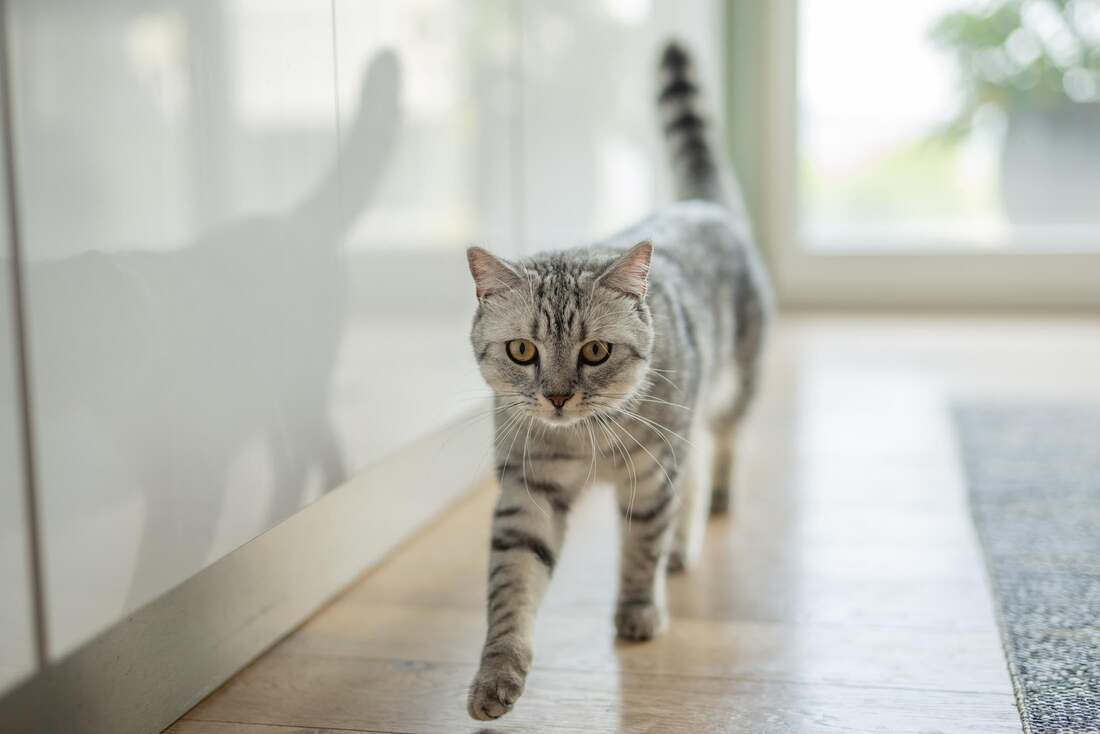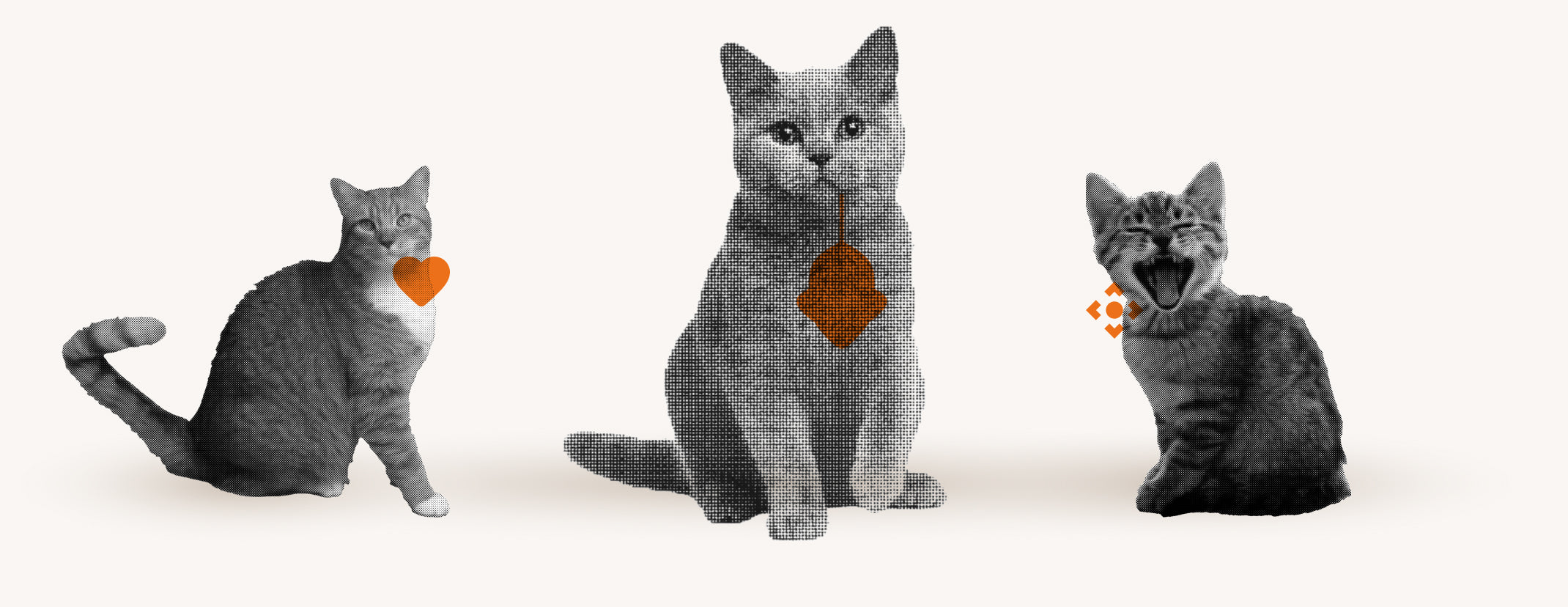Did you know that your cat’s diet has a massive impact on its health?
Many cat owners are unaware of the negative effects of too many carbohydrates in their pets’ food.
Cat food without carbohydrates can help reduce the risk of diabetes and obesity, thus promoting the health and well-being of your cat.
In this article, you'll learn all about the benefits of low-carb diets for cats, explore different types of foods, and discover how to make the best choice for your pet.
Gluten Sensitivity and Cat Food Without Carbohydrates
If your cat often has skin problems, diarrhea or vomiting after eating, it could be sensitive to gluten. Gluten is a protein found in many grains and can cause allergies or intolerances in some cats. In such cases, switching to low-carb and gluten-free cat food can be a great relief for your cat's health.
Cat food without carbohydrates and gluten offers several advantages:
- Reduces allergic reactions : No gluten means a lower risk of allergic reactions.
- Better digestion : Gluten-free food is often easier to digest, leading to fewer gastrointestinal problems.
- Improved Energy : Some cats show improved energy and vitality without the difficult-to-digest carbohydrates and gluten.
Grain in cat food: Pros and Cons

Grains in cat food are a controversial topic. Some experts claim that grains are a good source of energy and provide important nutrients such as B vitamins. Others argue that cats, as carnivores, have difficulty digesting grains and that it can lead to health problems such as allergies and obesity.
The key is balance and quality of the food. High-quality cat food that contains grains can be healthy for cats if it is processed properly and the grain content is kept low. It is important to check the ingredient list carefully and avoid products that use grains as a main ingredient.
Ingredients in low-carbohydrate cat food

Low-carb cat food focuses on high-quality proteins and largely avoids grains. The main ingredients are often animal products such as meat, poultry or fish, which are rich in essential amino acids. These proteins are important for building muscle and the general health of your cat.
In addition to animal proteins, good recipes often contain plant-based ingredients such as vegetables and herbs that provide additional vitamins and minerals. It is crucial that the cat food does not contain artificial preservatives or added sugars to promote your cat's health.
Food types: wet, dry or homemade?

When choosing between wet food, dry food and homemade food, it is important to consider the carbohydrate content. Wet food is generally lower in carbohydrates than dry food, making it a good choice for a low-carb diet. Homemade food offers the ability to closely control the ingredients, thus keeping the carbohydrate content low.
Dry food is often higher in carbohydrates because carbohydrates are used as a binding agent. It is convenient and has a long shelf life, but it is important to read the ingredient list carefully. Make sure the meat content is high and there are no unnecessary fillers.
Homemade cat food allows for complete control over the ingredients. You can ensure your cat is getting high-quality proteins and little to no carbohydrates. However, it requires more time and knowledge of cat nutrition to ensure all nutritional needs are met.
Proteins in low-carbohydrate cat food
Proteins are essential for cats because they are natural carnivores. A low-carbohydrate cat food should have a particularly high protein content. Good sources of high-quality protein are muscle meat and organ meat, which provide essential amino acids and taurine, which are critical for the cat's health.
When choosing low-carb cat food, make sure it has a high meat content. Proteins should primarily come from animal sources, as plant proteins do not provide all the necessary amino acids that cats need. Avoid foods that are high in plant proteins or have unnecessary additives.
Sugar and grains in cat food: risks

Sugar in cat food is a controversial topic. Although sugar is not directly harmful in small amounts, in the long term it can lead to health problems such as obesity and diabetes. It is important to choose sugar-free food to minimize the risk of these diseases.
Grains can also be problematic in cat food, especially when present in large quantities. Grains can be hard on the digestive system and can lead to allergies. Therefore, choose grain-free or low-carb foods to support your cat's health.
Milk in cat food: yes or no?

Milk is a classic image in cat nutrition, but not all types of milk are suitable for cats. Cow's milk contains lactose, which many cats cannot digest well, which can lead to diarrhea and stomach upset. Therefore, it is important that, if at all, you offer your cat lactose-free milk or special cat milk that is tailored to their needs.
There are several alternatives to conventional milk that are more tolerable for cats:
- Lactose-free milk : This milk has a reduced lactose content, making it easier for cats to digest.
- Cat milk : Dairy products specially developed for cats, which often contain additional nutrients and are lactose-free.
- Plant-based milks : Although plant-based milks such as almond or soy milk are non-toxic, they do not provide the same nutritional value as animal milk and can cause digestive problems, making them not recommended for cats.
Discover Flappie for a healthier cat
Flappie 's smart cat flap is not only a technological innovation, it also actively contributes to your cat's health. Through selective access control and prey detection, it prevents your cat from bringing home prey such as mice or birds that could transmit diseases. This keeps your home clean and your cat healthier.
The Flappie app perfectly complements the functions of the cat flap. You receive push notifications and can control the flap remotely, which helps you monitor your cat's food intake. Visit https://flappie.ch to learn more about how Flappie can improve your cat's wellbeing.
Frequently Asked Questions
Which cat food is carbohydrate-free?
Cat food without carbohydrates focuses on high-quality proteins and largely avoids grains. The main ingredients are often animal products such as meat, poultry or fish. It is important that the food does not contain any artificial preservatives or added sugar.
Why don't cats need carbohydrates?
Cats are natural carnivores and have difficulty digesting grains and other carbohydrates. Carbohydrates can lead to health problems such as obesity and diabetes, so it is often better to choose a low-carbohydrate food to support the cat's health.
Which cat food does not contain grains?
Low-carb cat foods that focus on high-quality proteins often do not contain grains. The main ingredients are usually animal products such as meat, poultry or fish. It is important to check the ingredient list carefully and avoid products that use grains as the main ingredient.





Share:
Cooking Barf Cat Recipe: Healthy Homemade Nutrition